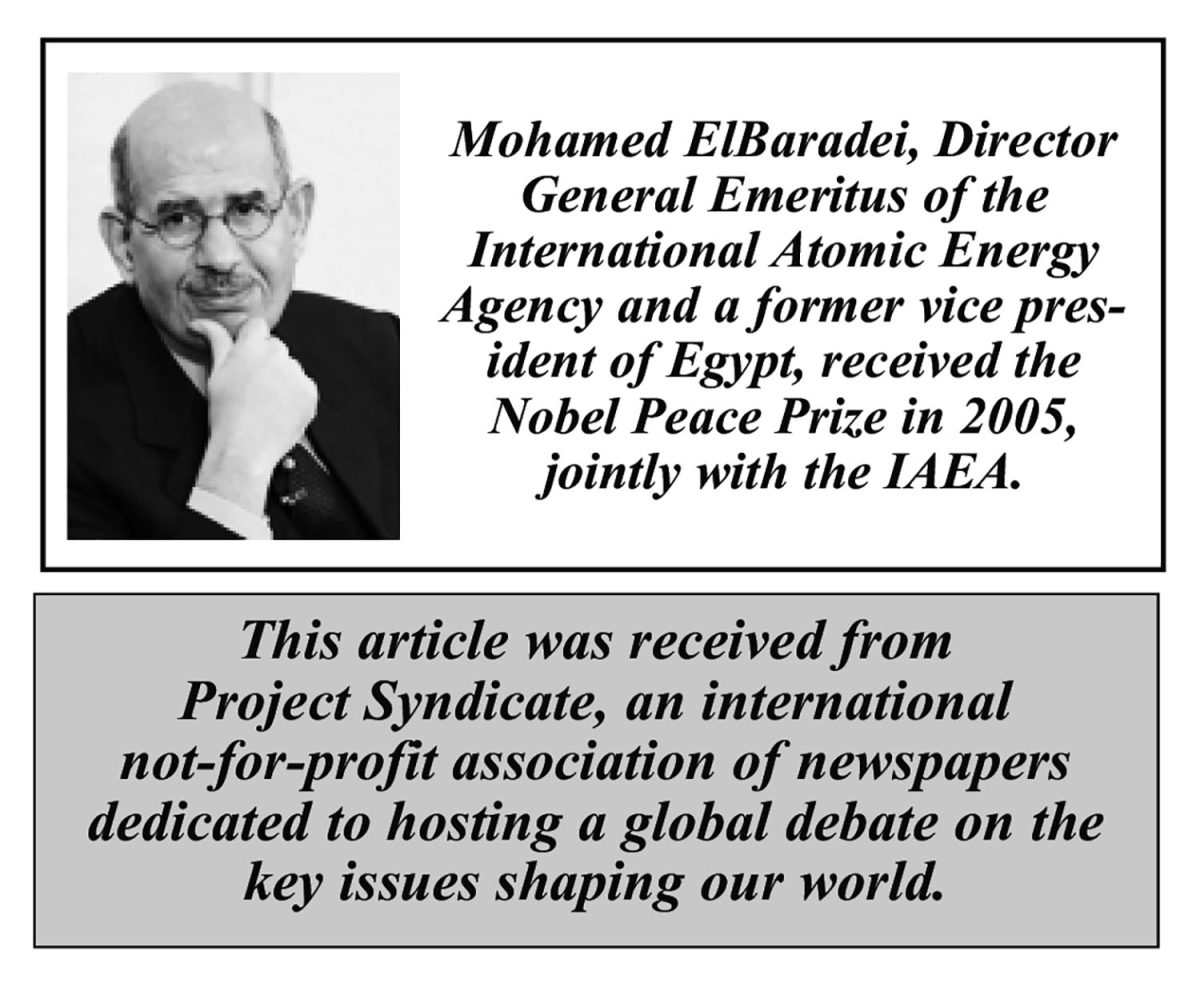VIENNA – At 82, I have lived through countless political and social upheavals, enough to become somewhat inured to history’s recurring cycles. But recent developments have left me profoundly shaken and afraid. The bedrock principles of international law, established in the aftermath of World War II, are being flagrantly undermined. The ban on acquiring territory by force, the obligation to protect civilians during conflict, the limitations on the right of self-defense, and the United Nations Security Council’s mandate to “maintain international peace and security” are all unraveling, with little regard for the consequences.
In Ukraine and Gaza, occupation has been weaponized as a means of settling disputes, with civilians used as cannon fodder and the right to self-defense distorted to justify acts of retaliation and revenge – in Gaza, these actions border on genocide. Meanwhile, the United States and Russia routinely abuse their veto power at the UN Security Council, reducing it to a toothless body incapable of calling for a ceasefire in either conflict. Amid this geopolitical turmoil, extrajudicial killings, once universally condemned, are celebrated as triumphs.
This breakdown reflects the rapid transformation of the multilateral security system into a multipolar order dominated by three major powers, each singularly focused on protecting its interests and expanding its sphere of influence, leaving the rest of the world increasingly insecure. In today’s global landscape, the cardinal rule seems to be: With enough power, governments can get away with murder.
The erosion of international rules and norms is compounded by glaring double standards. Western powers’ unconditional support for Israel’s actions in Gaza and Lebanon – repeatedly justified by the refrain, “Israel has the right to defend itself” – contrasts sharply with the harsh economic sanctions imposed on Russia. Admittedly, Russia initiated the war in Ukraine, just as Hamas did in Gaza, but Israel’s violations of international law have been so numerous and egregious that it has effectively assumed the role of aggressor.
These double standards have been acutely felt across the developing world, where the common perception is that major democracies’ commitment to human rights ends at their own borders. Consequently, a profound sense of injustice and hypocrisy has intensified the long-standing distrust between the Global North and South.
Alarmingly, geopolitical tensions are deepening just as humanity is grappling with three existential threats that require close international cooperation: climate change, the nuclear-arms race, and the rise of artificial intelligence.
The climate crisis has already escalated into a full-blown environmental catastrophe, marked by increasingly frequent and severe storms, floods, droughts, and wildfires. Without drastic cuts in greenhouse-gas emissions, global warming is projected to surpass the 2° Celsius threshold set by the 2015 Paris climate agreement and reach 3°C by the end of the century. Yet the international community is unable to agree on the actions and financing needed to avert disaster. US President-elect Donald Trump, who withdrew from the Paris accord during his first term, is widely expected to do so again, jeopardizing progress toward effective climate action.
Similarly, efforts to mitigate the nuclear threat have regressed into a frantic arms race. In stark contrast to Ronald Reagan and Mikhail Gorbachev’s assertion that “a nuclear war cannot be won and must never be fought,” some nuclear-armed states now openly flaunt their stockpiles. Russia, for example, has repeatedly threatened to deploy tactical nuclear weapons in Ukraine. Adding to these dangers, the New START Treaty – the last remaining agreement regulating the arsenals of the world’s two largest nuclear powers – is set to expire in early 2026.
Like nuclear power, addressing the risks posed by AI requires global oversight and collaboration. But in today’s climate of confrontation and brinkmanship, meaningful cooperation between the US, China, and Russia is highly unlikely.
Rising inequality, both within and between countries, is another major driver of global instability. Economic disparities, coupled with growing public distrust of elites, have fueled the recent surge of populism. This is particularly concerning, since history has shown that unchecked inequality creates fertile ground for the rise of authoritarian and fascist leaders.
A new mindset is urgently needed. In the absence of an effective and inclusive security order, the global arms race will intensify, increasing the likelihood of nuclear war. Isolationism and trade wars, which would stifle economic growth and replace the rule of law with rule by force, are not the answer. Instead, governments must recognize that the only path forward is through cooperation and compromise.
It is also necessary to recognize that globalization, while not without its flaws, brings significant benefits. In the face of today’s monumental challenges, we can either work to ensure freedom and security for all or watch the world descend into chaos. To those who would call this pie-in-the-sky idealism, here is some hardheaded realism: without a renewed commitment to freedom, equality, human dignity, and solidarity, we face the very real prospect of collective ruin.
Copyright: Project Syndicate, 2024.








